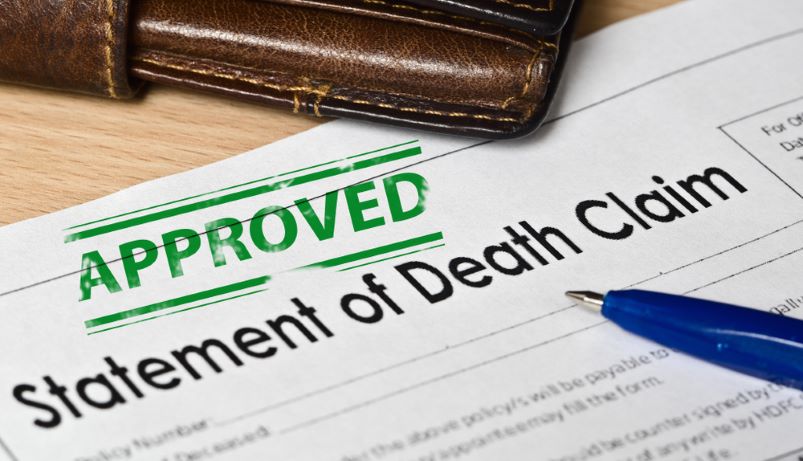What Happens to Insurance Policies if the Policyholder Dies
Ms. Ananya was covered under a family floater health insurance plan from an eminent insurance company where her father, Mr. Avinash, was the primary policyholder. Unfortunately, Mr. Avinash expired due to natural causes during the policy tenure. A few months later, Ms. Ananya had a minor accident and suffered mild injuries. Though the floater health insurance policy is still active, Ms. Ananya was not completely aware of the coverage benefits. The death benefit of her father’s family floater plan allowed continued health insurance coverage for Ms. Ananya and her mother. But Ms. Ananya paid the whole treatment cost from her pocket due to her inadequate knowledge of the validity of the policy.
Health insurance helps you to stay protected from various illnesses. A health insurance plan safeguards your savings in the case of medical contingencies. But have you considered what will happen to your health policy in your absence, especially when the policy is still valid? The answer depends on multifarious factors like the type of your health policy plan, the age of the family members, your beneficiaries, and more.
Before purchasing a health insurance policy, just go through the documents and check what happens to your policy coverage in case of your demise. A death benefit will be provided to family members as the continuation of coverage. According to their age and income, your dependents will be eligible for health insurance coverage benefits.
Let’s take a look at what happens to the health policy after the demise of an insured policyholder.
If a family member dies in the case of hospitalization
Under a family floater policy, if an insured member dies, the proposer should inform the insurance company. The insurance company will remove the deceased member from the coverage and will offer coverage to remaining family members. The sum insured can be utilized by the rest of the members. As per the policy terms and conditions, the proportional premium may be refunded.
If an insurance policyholder dies
If the proposer of the policy died, then the family should inform the insurance company about the same because the company needs to change the proposer in the policy. A new proposer needs to fill up the new form. Then, the insurance company will change the proposer and continue the policy for the remaining members.
If more than one member (including the proposer) dies in hospital
If this is a reimbursement claim, the nominee will be provided the claim amount as per the policy terms. The insurance company used to collect the nominee details and needs to be printed on the policy. In the case of a cashless claim, the hospitalization expenses will be paid to the hospital directly by the company. This will help dependent members not get loaded with medical expenses.
Does health insurance cover death?
Let’s consider what death benefits you will get against various health policies.
Group Health Insurance Policy
A group health policy is offered to the employees by employers. This plan has many resemblances with a family floater health plan, but the employer primarily controls the policy and its benefits. Since employers pay the premiums for basic health insurance coverage, hence they will not lose control.
Death Benefit in Group Health Insurance
If the employee dies, then the policy will be terminated. The dependents won’t get any benefit from the policy unless overtly mentioned in the policy. If any death benefit is mentioned in the policy, then the employee’s next of kin will receive a lump sum amount from the employer.
If another family member expires, the policy will be endorsed. The policy will be updated with the list of remaining dependents. Thus, the remaining family members will enjoy the benefits of health insurance coverage.
Critical Illness Plan
If the insured policyholder is diagnosed with any of the listed critical diseases, this health insurance policy offers a lump sum amount to the insured member.
Death benefit in Critical Illness Plan
The critical illness policy won’t offer any death benefit to the insured policyholder. To initiate a claim, a policyholder needs to survive for a fixed number of days after diagnosis of the disease. If the insured member dies during this bandwidth, then the policy will not pay anything.
Senior Citizen Health Insurance
This health insurance policy has many resemblances with an individual health policy. This policy offers coverage and benefits to a person who is above 60 years.
Death Benefit in Senior Citizen Health Insurance
If the insured policyholder suffers death, this policy gets void.
The death of the prime insured person may not dismiss health insurance coverage. But this primarily depends on what type of policy you have chosen for yourself and your loved ones. If you provide correct information to the insurer and keep paying premiums, the policy will continue. Another insured person can pay premiums after informing the health insurer about the ill-fated demise of the prime policyholder.
But you can’t assume that your health insurance coverage and benefits will remain the same even after the insured member’s death. Thus, it is always recommended to read the death clause of your policy and inform your family members regarding the finality of your health insurance policy plan.




























